
|
Saturday, October 22, 2011
Gualala Arts Center
5:00 p.m. Doors Open
5:30 p.m. Offering
6:00 p.m. Appetizers & Dance Performance
7:00 p.m. Dinner
8:00 p.m. Dessert & Fashion Show
9:00 p.m. Dandia Ras (open dance)
|
|
|
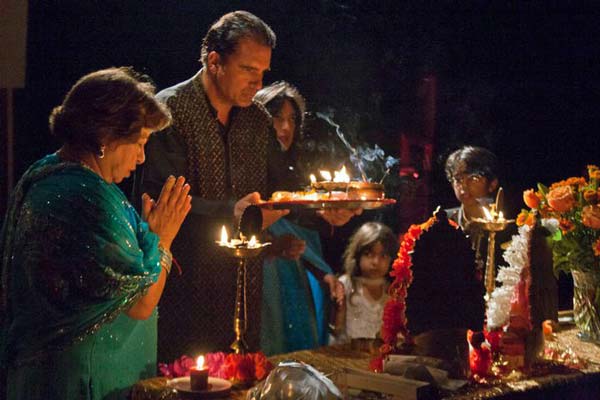
Diwali: Festival of Lights, November, 2010 at Gualala Arts Center
As part of the Gualala Arts Global Harmony Series, there will be a Festival of Lights at Gualala Arts Center on Saturday, October 22, 2011.
Last year's Diwali
was such a success that everyone is looking forward to the food and beautiful saris. Please feel free to dress in your own sari.
Guru Jyoti Rout
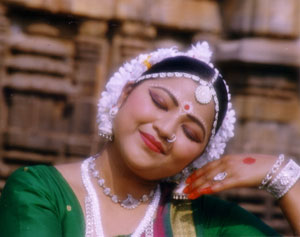
Guru Jyoti Rout is the founder director of Jyoti Kala Mandir, College of Indian Classical Arts. She is actively engaged in spreading awareness and appreciation of this ancient art form on the far side of the globe.
She has received her training in Odissi dance at Utkal Sangeet Mahavidylay, Bhubaneswar.
She founded Jyoti Kala Mandir in Berkeley California, one of the largest Odissi schools in the West. She has also established centers in Santa Clara, Hawaii, and Bhubaneshwar. She has Choreographed over 50 original Odissi Items.
Guru Jyoti Rout is a truly gifted performer. To witness her dance is to see the ancient temple sculptures come to life. She is most appreciated for her abhinaya. She moves between rage, love, fear and amusement with ease, moving you to empathize with each character. Even within each emotion she conveys the subtle nuances, those imperceptible shifts in feeling - with clarity and genuiness.Guru Jyoti Rout is a gifted choreographer.
She is the recipient of an award for her outstanding choreography from the prestigious Ethnic Dance Festival at San Francisco (USA) in 2006. She went on to receive a grant for choreographing an Odissi item for the 2007 Ethnic Dance Festival. She has been honored by several National and International awards from around the globe including Pride of India National Award and Shrishetra Mahari Award from Jagannath Puri, Shrestha Odiani, Kalashree OSA USA etc.
Guru Jyoti Rout is much more than a skilled dancer. As Brenda Payton of the Oakland Tribune (newspaper) rightly observed "Jyoti Rout has no interest in simply making beautiful dances, even though by all accounts her performances are stunningly beautiful. She's after something more profound. As a dancer, choreographer, and teacher of Odissi dance... she is trying to channel and communicate the essence of spirituality."
Shyamahari Chakra of The Hindu (newspaper) said, "Ambassador of Odissi Dance"
Guru Jyoti Rout is an inspired teacher. She has shaped her students into great dancers, several of whom have chosen to move across the country to study with her. She has trained a number of students for their Ranga Puja, many of whom have become successful soloists and Odissi dance teachers. It is fascinating to watch her transform her students, most often from a western ethos, into dancers having the consciousness, sensibility and body language of an Odissi dancer. She teaches Odissi as a spiritual practice, emphasizing relaxation, mindfulness and focus while engaging in rigorous physical practice.
|
Program
5:00 p.m. Doors open, Introduction
5:30 p.m. Offering at the Altar
A prayer ritual will be performed at the Altar to invoke God Ganesh, destroyer of all obstacles and for harmony in our lives; and to welcome the Goddess Lakshmi, Goddess of wealth, prosperity and happiness.
After the prayer ritual, Shanti Mantra (Mantra of Peace), by Shri Ravi Shankar will be played during which all guests will be invited to light the lamps on their tables. The light is a symbol of removing all shadows and sadness in our lives and inviting joy and prosperity. Guests may also come to the altar and participate in offering prayers and receiving blessings. Sacred threads will be tied on the wrists of the guests and red kumkum paste (tika) will be placed on the forehead as a blessing.
6:00 p.m. Appetizers and Dance Performance
Appetizers will be served to the guests. Wine bar will also be open to purchase drinks.
Internationally renowned performer and choreographer and the founder of Jyoti Kala Mandir, in Berkeley and Silicon Valley area, Guru Jyoti Rout will give a dance performance, seeking the divine blessings of God Ganesh and Goddess Lakshmi.
Jyoti Kala Mandir is College of Indian Classical Arts. It is specifically dedicated to Odissi Dance, which is a devotional for of temple dance from Odisha, Central India.
Her performance will include:
- Mangalacharam and Devi Vandana: Prayer to God Ganesh, and the Divine Mother, Goddess Lakshmi.
- Abhinaya: Mahishasura Mardini Strota, that describes the Goddess Durga inher many forms, both fierce and nurturing.
- Dasha Avatar: A dance dedicated to the ten Incarnation of the Divine on Earth.
- Mokshya: Mokshya means enlightenment, the highest stage of devotion. In this piece the dance and the dancer become one, as the dancer offers herself in complete surrender to the Divine.
(More specific details about the Odissi Dance and Guru Jyoti and Jyoti Kala Mandir are provided in a separate brochure that will be distributed during this event).
7.00 p.m. Dinner
A vegetarian Indian Buffet Dinner will be served, prepared by Sumedha Mona Khanna and her family.
8.00 p.m. Dessert and Fashion Show
Dessert with Indian Tea will be served, followed by a fashion Show of traditional and modern Indian attires worn by children, women and men.
9.00 p.m. Dandia Ras
A traditional Indian Folk Dance with sticks will be performed, open to the public. Everyone is invited to join.
Raffle tickets will be available at the door and throughout the evening for interesting prizes for lucky winners.
Diwali sale: Some selected Indian outfits will be available for sale during the event.
Tickets are $35 advance and $5 more after October 14, if available. For advance purchase, go to
Brown Paper Tickets
or call them at 800-838-3006. To purchase in person, visit the Gualala Arts Center.
HAPPY DIWALI
May there be peace, prosperity and light in your life
This year and beyond.
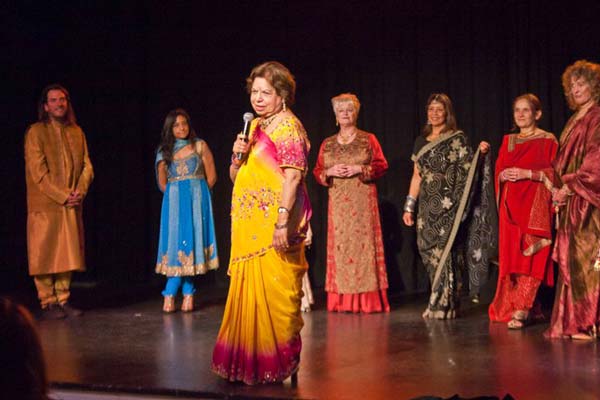
Festival of Lights
Diwali or Deepavali (as it is known in India)
Meaning and Significance
Diwali is a festival where people from all age groups participate. They give expression to their happiness by lighting earthen lamps (diyas), decorating the houses, bursting firecrackers and inviting family and friends to their homes for a sumptuous feast. The lighting of lamps is a way of paying obeisance to the Divine for attainment of health, wealth, happiness, peace and love.
In India, when the economy was principally based on agriculture, this festival was believed to be started thousands of years ago, at the completion of the harvest of crops. At this time people felt that they did not have to worry about food for the rest of the year. So they celebrated their abundance and joy through lighting the lamps and sharing abundance of food. In due course of time, numerous historical incidents got associated with this festival, most important of which is the celebration of victorious return of Lord Rama to his kingdom after killing the demon king Ravana of Lanka. It is therefore also a festival for the celebration of Victory of Good over Evil.
The festival is also especially dedicated to the worship of God Ganesh and Goddess Lakshmi. God Ganesh is the god of good beginnings and remover of obstacles. He is blessed to be the first to be worshipped before anyone else. So on Diwali night ganesh shares the altar with Lakshmi, the goddess of wealth and prosperity. When placed side by side, Lakshmi and Ganesh hold out promise of a year of fulfillment and free from wants.
Celebration
With the evolution of lifestyles and technology, there have been changes in the way people celebrate Diwali. However the basic features and the spirit still are the same as they were thousands of years ago. Earthen lamps may have been replaced with stunning electric illuminations, but the custom and tradition of performing puja (spiritual offering) has been carried very well through generations.
The day starts at the crack of dawn, with people cleaning their houses and shops, taking their customary baths and getting dressed in new and festival attires. They decorate their houses even several days earlier with lamps and garlands. Families and friends visit each other carrying gifts of sweets and fruits etc. Gift giving of course has become more elaborate as prosperity in general has increases and the festival has become more commercialized. A vegetarian feast is prepared for the evening meal.
An Altar is prepared in every home with beautiful glittering decorations, garlands of marigolds and lamps. Statues of God Ganesh and Goddess Lakshmi are placed side by side and decorated with garlands. Specific articles of offering such as sandal paste, saffron, rice, kumkum (red paste), sacred red thread and scented incense sticks are placed on the Altar. Sweets and food that is prepared for the feast are also offered.
In the evenings lamps are placed throughout the house. The significance of the light is that the beauty of the world is then revealed or experienced. Darkness also represents ignorance, light is a metaphor for knowledge. Therefore lighting of lamps symbolizes the destruction, through knowledge, of all negative forces - wickedness, violence, lust, anger, envy, greed, bigotry, fear, injustice, oppression and suffering.
Before the lighting of the lamps in the homes, lamps are lit on the Altar and a puja (prayer ceremony) is performed at which the God Ganesh and Goddess Lakshmi are invoked and praised and offered sweets and food. Sacred thread is tied on the wrists of people present and the red Bindi (red paste) is placed on the foreheads. This forms a sort of blessing ritual. Everyone os also offered a Prasad, sacred offering of food as a symbol of blessing of abundance from the Altar. Everyone is invited to participate in the ritual on the Altar especially for seeking the blessings of the Divine.
After the lighting of the lamps on the Altar, all the other lamps in the house are lit. Family and friends partake in the ritual vegetarian feast. Firecrackers are then lit and the neighborhoods get together during this joyful time.
Proudly sponsored by

Mendocino Brewing Company
& Kingfisher Beer
Diwali: Festival of Lights
Gualala Arts Center
October, 2011
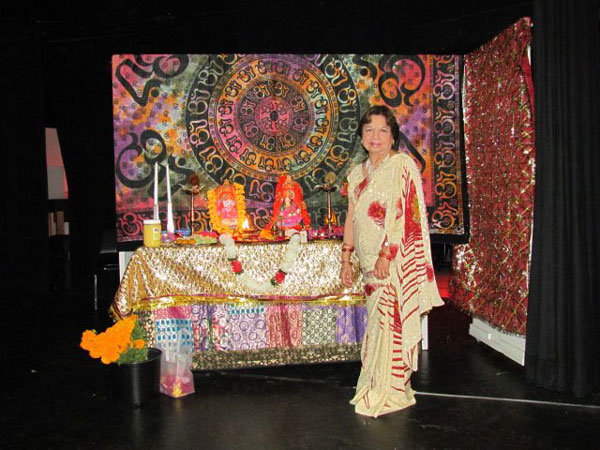
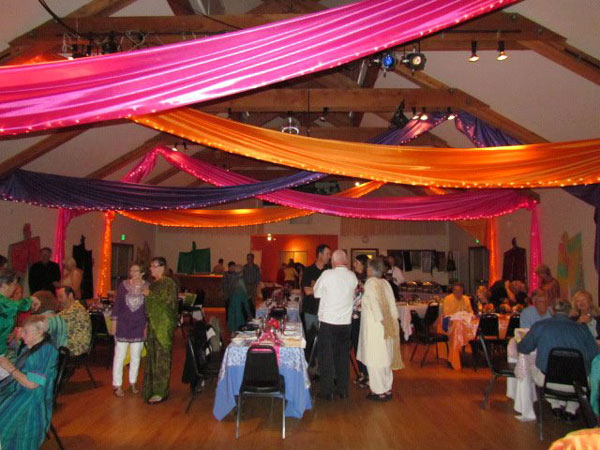
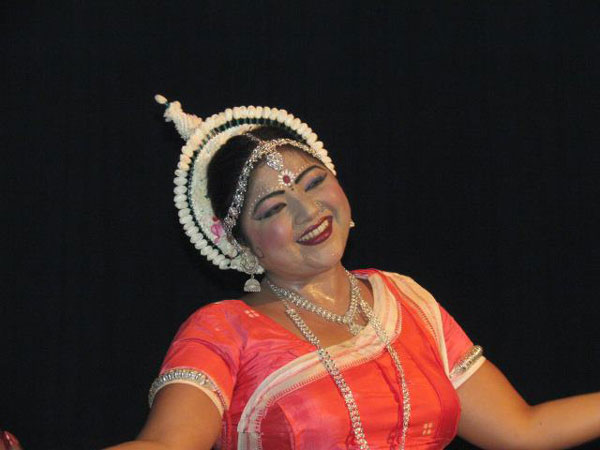
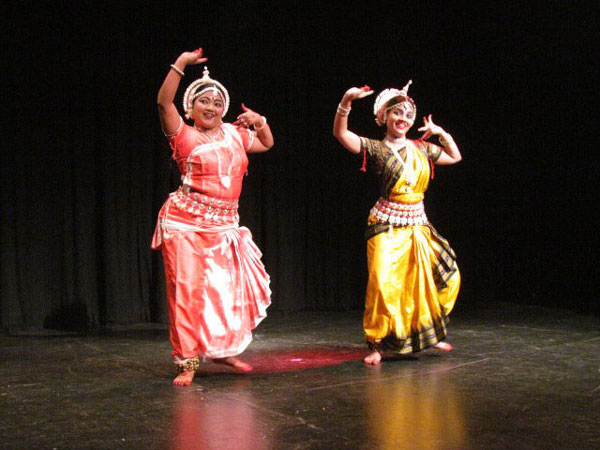
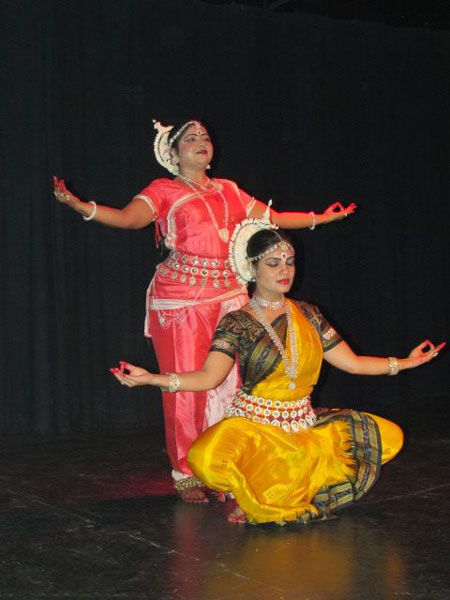
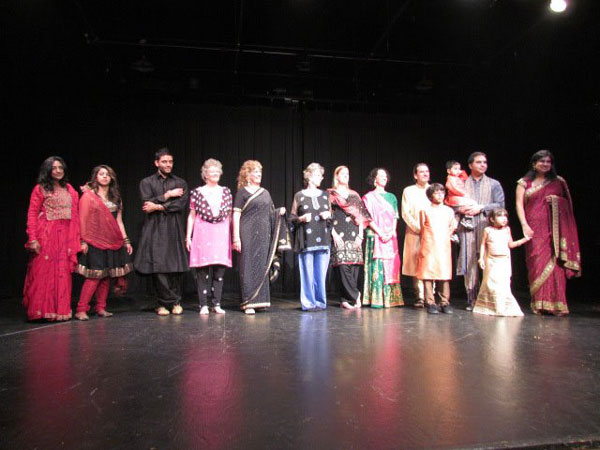
Thanks to Richard Kuehn for providing these wonderful photos
from the 2011 Diwali Fesival of Lights celebration!
|
More photos on

|

The Gualala Arts Center, located at 46501 Old State Highway in Gualala, CA,
is open weekdays 9:00 a.m. to 4:00 p.m., and weekends from noon to 4:00 p.m.
Please call (707) 884-1138 for more information, or email
info@gualalaarts.org.
Join us in celebrating the 50th Anniversary of Gualala Arts, 1961 - 2011
Serving the coastal communities of northern Sonoma & southern Mendocino Counties.












